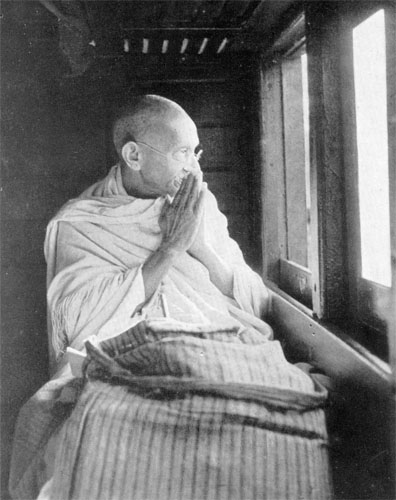

Remembering Mahatma Gandhi through the perspectives of international Figures |
- TOI Lifestyle Desk*
October 2nd holds immense significance for India as it commemorates the birth anniversary of Mahatma Gandhi, the Father of the Nation. This day not only honours his contributions to India’s independence but also serves as a reminder of his enduring message of peace, non-violence, and social justice. Gandhi’s life and teachings have inspired countless individuals across the globe, transcending cultural and national boundaries. As the country celebrates Gandhi’s birthday, it’s important to reflect on the profound impact he has had on various international figures. As India honours Gandhi on this significant day, the enduring legacy of his teachings continues to inspire individuals around the world. From technology leaders and musicians to political figures and actors, Gandhi’s philosophy of non-violence and justice resonates deeply, encouraging a collective commitment to peaceful change and social equity. His life serves as a powerful reminder of the impact one individual can have in shaping the world, urging all of us to reflect on our own roles in fostering a more just and compassionate society. International figures inspired by Mahatma GandhiSteve JobsSteve Jobs’ connection to Gandhi began during a pivotal moment in his life. At just 19, Jobs travelled to India in search of spiritual enlightenment. This journey deeply influenced his worldview and leadership style. Upon returning to the United States, he expressed a strong admiration for Gandhi, considering him a model for what he wanted to achieve. Jobs famously said, “He changed the world,” highlighting Gandhi’s ability to inspire change through peaceful means. During a particularly challenging period at Apple, Jobs adopted the round wire-rimmed glasses famously worn by Gandhi, symbolising his reverence for the leader. In a 1999 interview, he named Gandhi as his Person of the Century, underscoring the significance of moral action in effecting social change. John LennonJohn Lennon’s relationship with Gandhi was both personal and philosophical. He often reflected on the paradox faced by nonviolent leaders like Gandhi and Martin Luther King Jr., who were tragically assassinated despite their commitment to peace. In the early drafts of the iconic Sgt. Pepper’s Lonely Hearts Club Band album cover, Lennon included Gandhi among a collage of influential figures but ultimately replaced him with a palm leaf due to concerns over potential backlash. Lennon’s commitment to non-violence was evident in his activism against the Vietnam War, where he and Yoko Ono advocated for peace. His song “Mind Games” explicitly references Gandhi, illustrating the deep resonance of Gandhi’s principles in Lennon’s pursuit of social justice Dalai LamaThe Dalai Lama has frequently spoken about Gandhi’s profound impact on his life and philosophy. During his Nobel Peace Prize acceptance speech in 1989, he paid tribute to Gandhi as a pioneering figure of non-violent resistance. Reflecting on Gandhi’s legacy, the Dalai Lama has described him as the most influential person of the 20th century, particularly for his promotion of ahimsa (non-violence). The Dalai Lama believes that Gandhi’s approach to achieving social and political change through non-violent means remains relevant today, inspiring individuals and movements worldwide. Barack ObamaBarack Obama has openly acknowledged the influence Gandhi has had on his life and political philosophy. In his memoir, he writes about how Gandhi’s teachings shaped his understanding of leadership and justice, alongside figures like Abraham Lincoln and Martin Luther King Jr. During a visit to Gandhi’s residence in Mumbai, Obama expressed a desire to engage with Gandhi’s legacy, reflecting on the strength and creativity that Gandhi demonstrated in his struggles. Keeping a framed picture of Gandhi in his Senate office served as a constant reminder of the ideals of peace and perseverance that Gandhi stood for. Matt DamonMatt Damon attributes much of his commitment to humanitarian efforts to the inspiration he drew from Gandhi’s teachings. He recalls that as a child, his mother kept a magnet on their refrigerator featuring a quote from Gandhi: “No matter how insignificant what you do may seem, it is important that you do it.” This early exposure to Gandhi’s philosophy instilled in him the importance of contributing positively to society, shaping his values and actions as an adult. Damon’s dedication to social causes reflects the powerful influence that Gandhi’s words can have across generations. Courtesy: The Times of India dated October 2, 2024. *The TOI Lifestyle Desk is a dynamic team of dedicated journalists who, with unwavering passion and commitment, sift through the pulse of the nation to curate a vibrant tapestry of lifestyle news for The Times of India readers. |